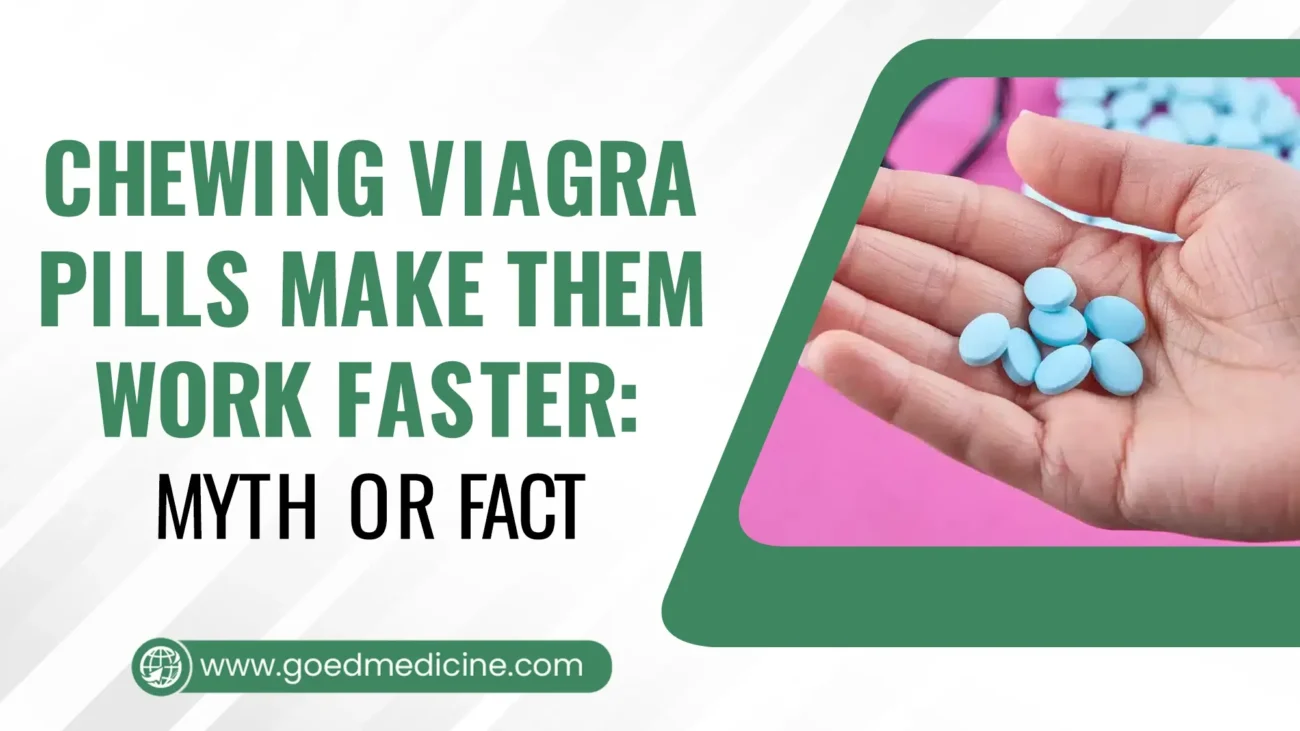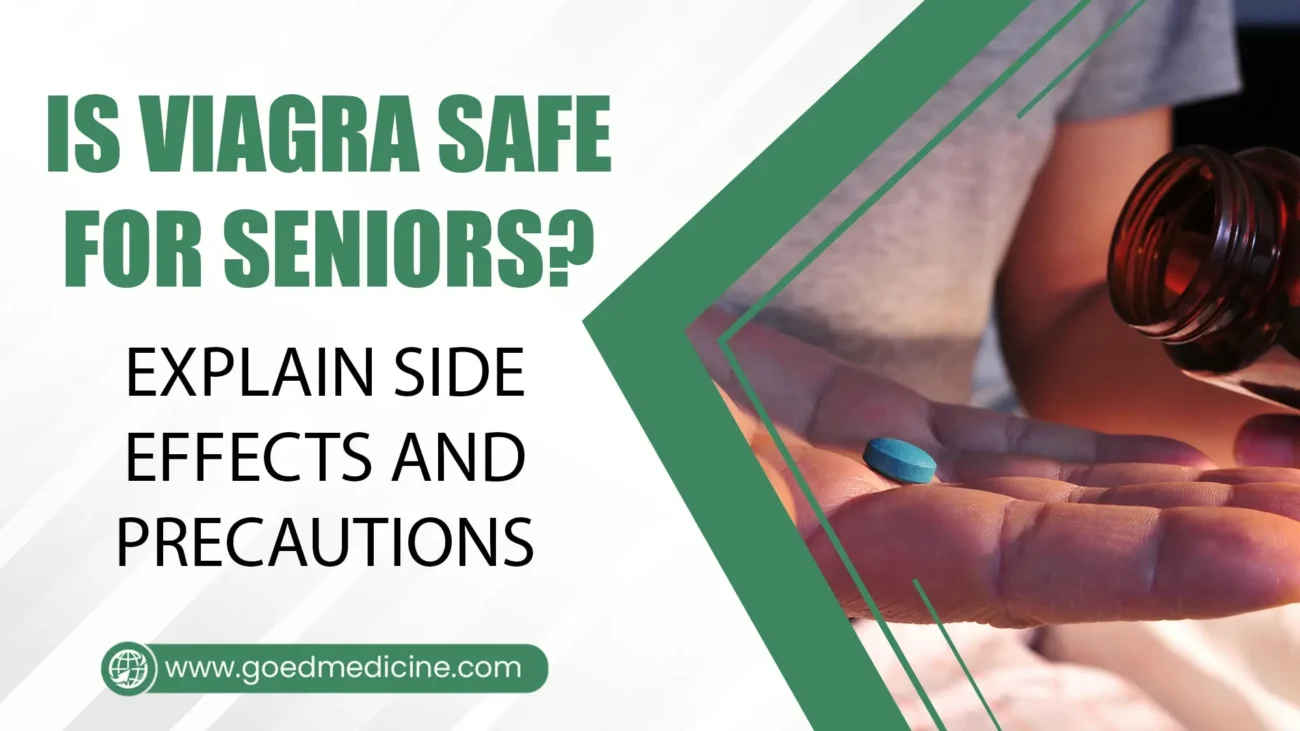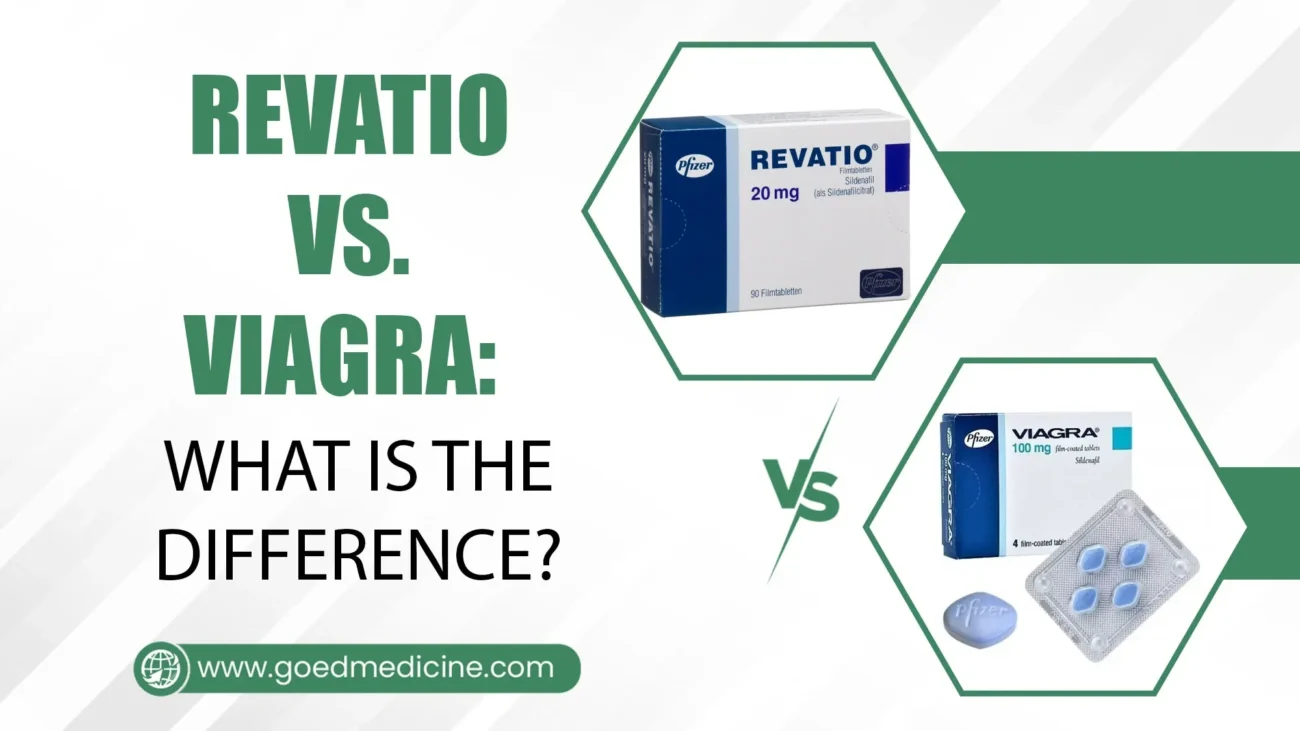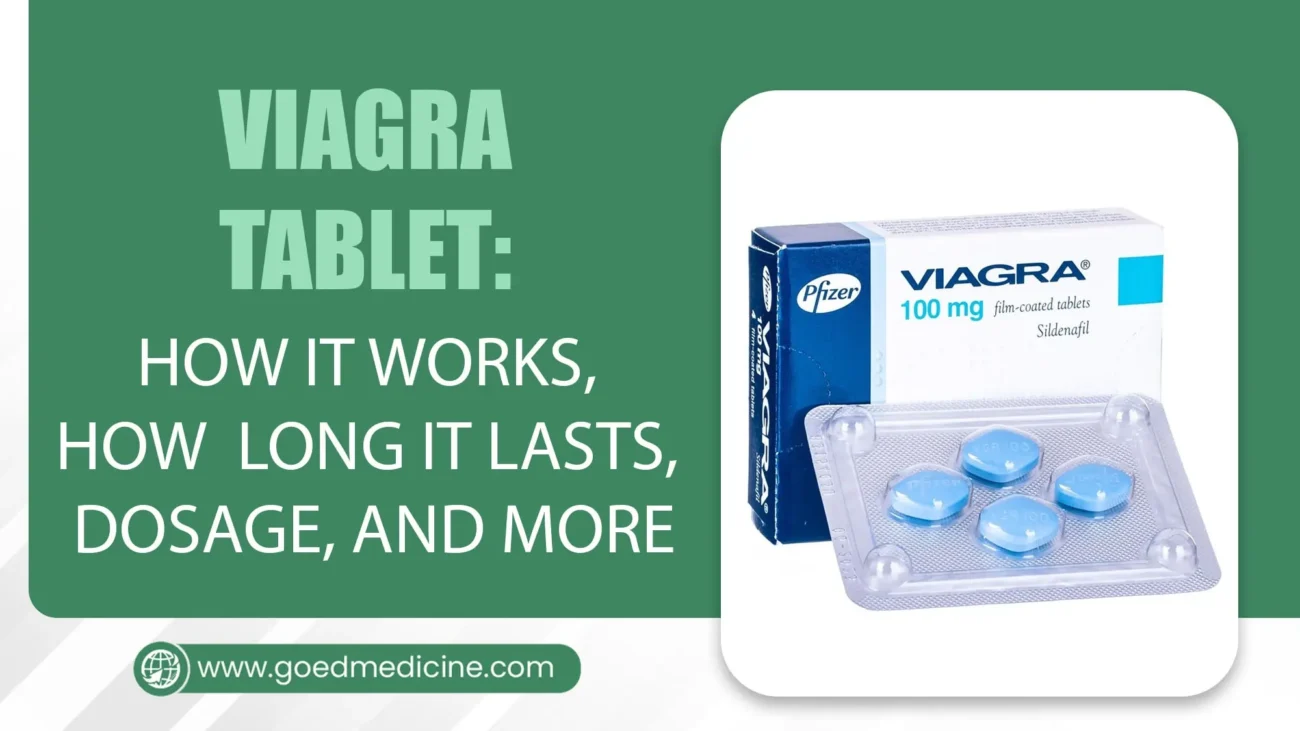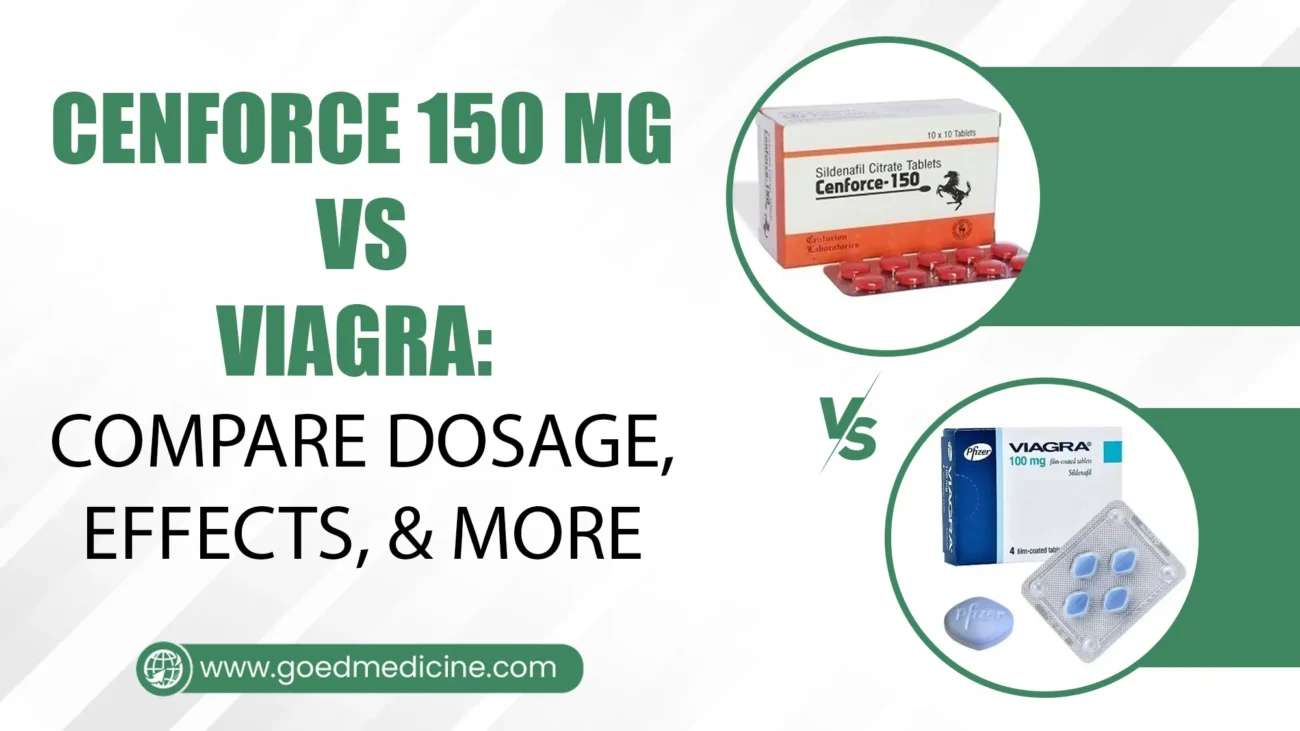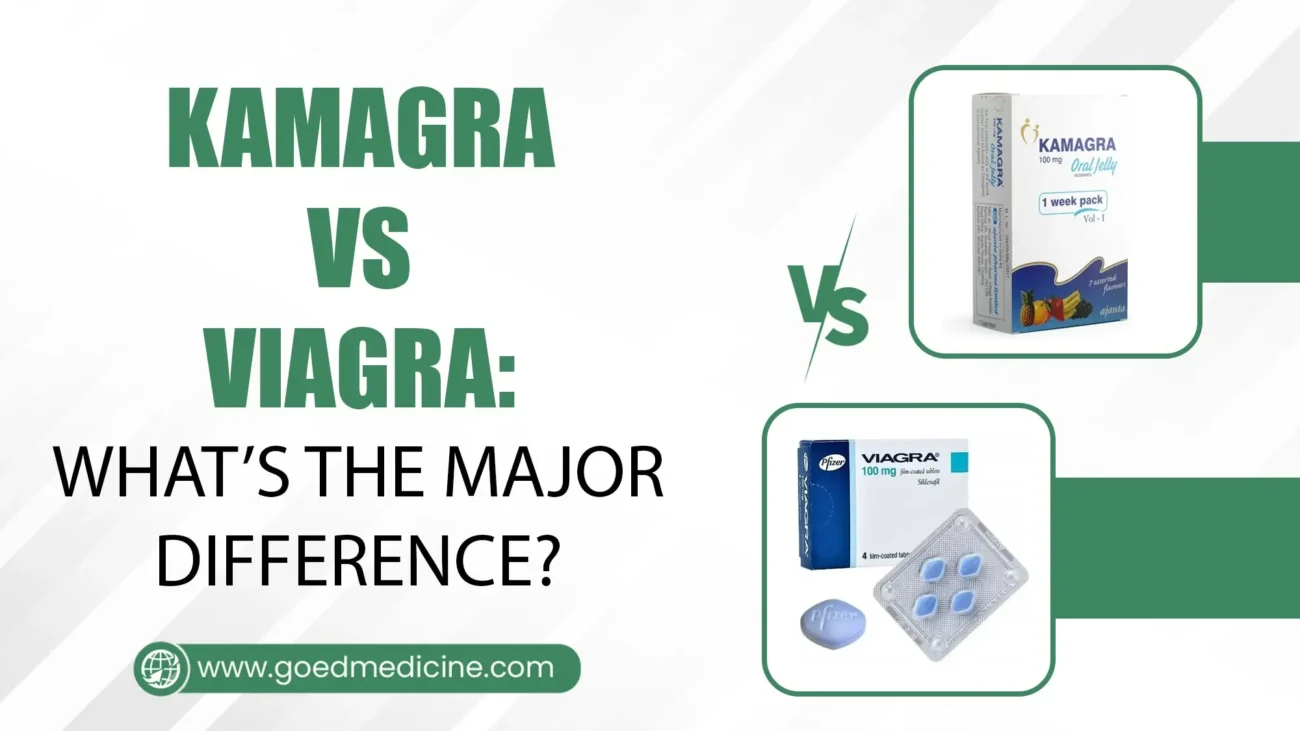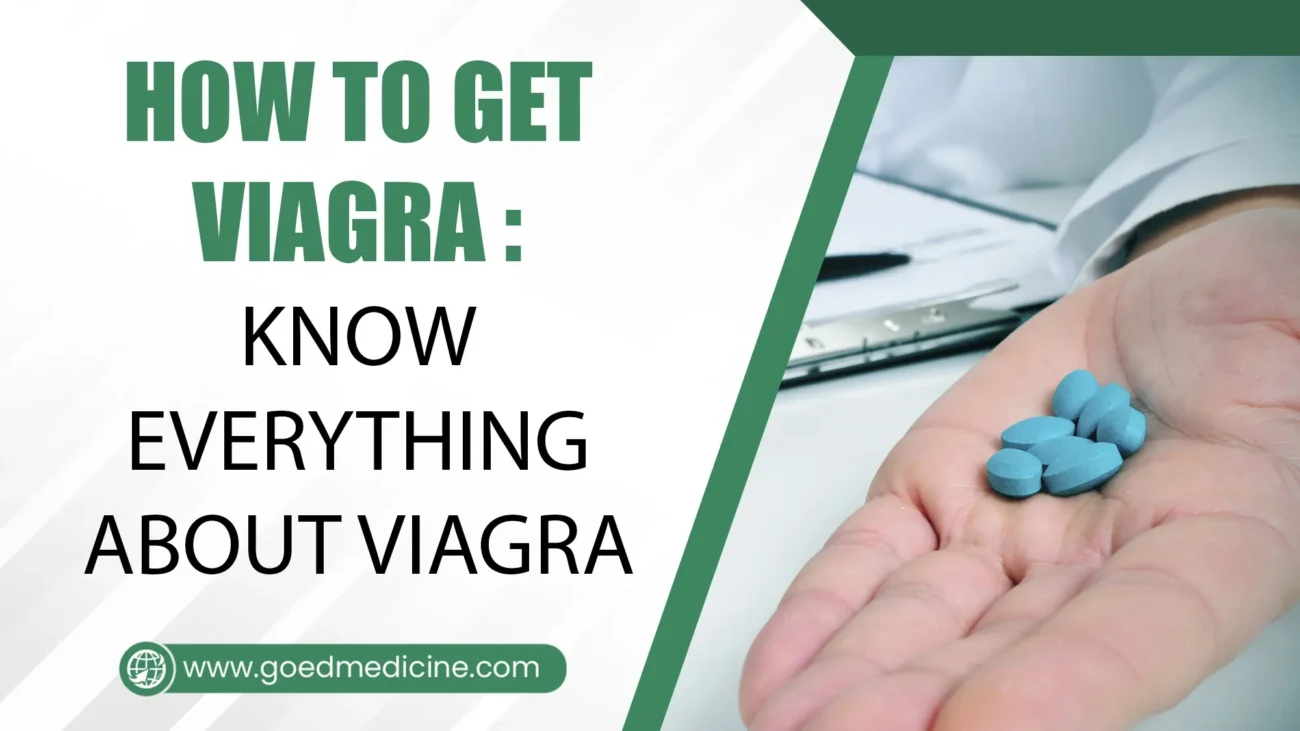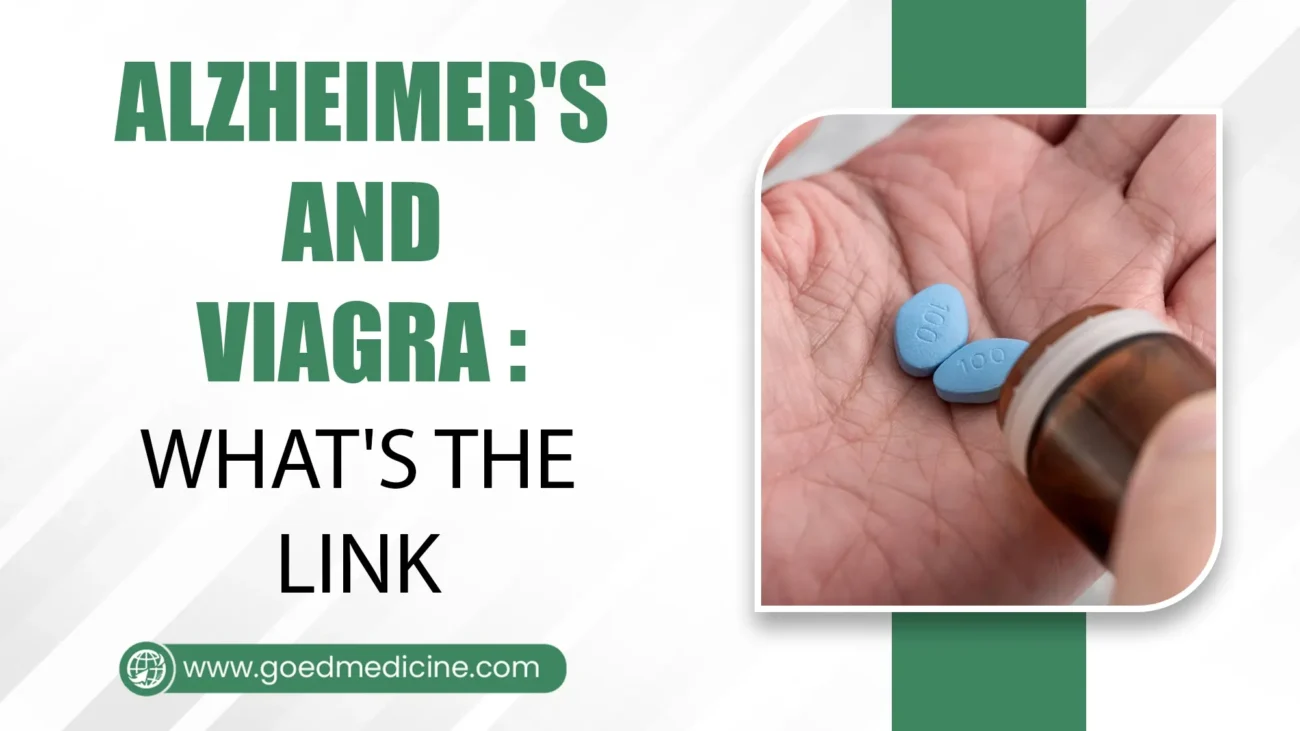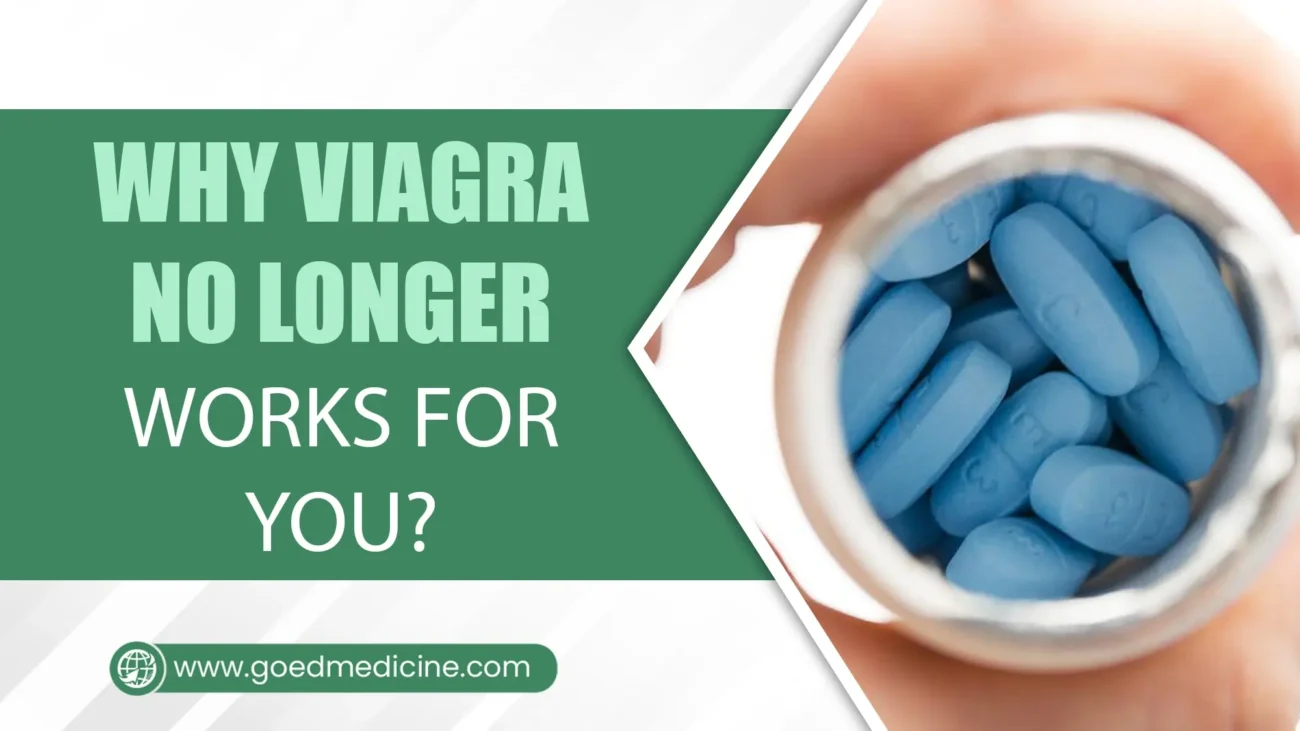Can You Take Viagra and Nitroglycerin Together?

Medications are very important for treating major health problems and making life better. But drug combinations can sometimes be very dangerous, especially when medicines that work on the heart and blood vessels are mixed together.
People often ask, “Can you take Viagra and Nitroglycerin Together?” This is a very important question that comes up in both medical and personal conversations.
It is very important to know how these two medicines affect each other because they are both commonly given for different conditions but may have harmful effects when taken together.
This piece talks about how these drugs work separately, the risks of taking them together, medical guidelines, and safe alternatives that can be used to treat health problems where both drugs may be considered.
Table of Contents
Understanding Viagra
- Viagra, which is also sold under the brand name sildenafil, is mostly used to treat erectile dysfunction (ED). It makes erections stronger and last longer by calming the blood vessels and sending more blood to certain parts of the body, especially the penis.
- The medicine works by blocking phosphodiesterase type 5 (PDE5). Viagra keeps the smooth muscles in your blood vessels relaxed by stopping the breakdown of cyclic guanosine monophosphate (cGMP).
- This relaxation causes vasodilation, which makes the blood flow better by lowering arterial resistance.
- Alternatives or generics that are very popular, like Cenforce 150, also contain sildenafil and help men with ED in the same way.
- Viagra is good for your sexual health, but it also raises your blood pressure throughout your body.
- It can cause a noticeable drop in blood pressure when taken, which could be dangerous if taken with other drugs that also affect heart function.
Understanding Nitroglycerin
Nitroglycerin is a drug that is often used to treat heart problems, especially angina pectoris, which happens when blood flow to the heart muscle is reduced.
Nitroglycerin is a nitrate, which is a type of drug. Nitric oxide is released by these drugs. It relaxes and widens blood vessels, making it easier for blood to move to the heart.
When taken during an angina attack, nitroglycerin can quickly ease chest pain by making it easier for the heart to pump blood and lowering its stress.
Depending on how bad the situation is, it can be given as tablets, sprays, patches, or solutions that are injected.
But taking Viagra and Nitroglycerin together is thought to be very dangerous because both affect blood vessels and drop blood pressure a lot. Taking nitrates with ED drugs like Malegra 200 Mg, which also has sildenafil in it, increases the chances of an interaction.
Taking nitrates with ED drugs like Malegra 200 Mg, which also has sildenafil in it, increases the chances of an interaction.
But because nitroglycerin drops blood pressure by widening blood vessels, it should only be used under close medical supervision and never with other drugs that affect blood flow in the same way.
The Interaction between Viagra and Nitroglycerin
- When people ask, “Can you take Viagra and Nitroglycerin Together?” the answer is a strong “no.” These two drugs should not be used at the same time.
- Viagra and nitroglycerin work together to widen blood vessels, which is how they interact. Both drugs widen the blood vessels, which lowers blood pressure by a lot.
- When these effects are added together, they can become very dangerous. Blood pressure can drop too low, which can cause weakness, dizziness, shock, heart attack, or even death in the worst cases.
- Case reports and clinical studies always say that this combo is not a good idea. Doctors and cardiologists stress that people who take any kind of nitrate should not take PDE5 inhibitors, such as Viagra, because the combination is very dangerous and could even kill the person.
- Other sildenafil-based drugs, like Fildena CT 100, also come with the same risks. Because they can cause serious low blood pressure, they should never be taken with nitrates.
Why the Combination is Dangerous?
The combination of Viagra and Nitroglycerin poses a severe risk for several reasons:
Extreme Drop in Blood Pressure
Deep hypotension is the most obvious risk. Too little blood pressure means that important organs like the brain, kidneys, and heart itself can’t get enough oxygen.
Increased Risk of Heart Attack and Stroke
Viagra is sometimes given to people with well-controlled heart problems, but taking it with nitroglycerin can dangerously lower blood flow to the heart, which can make angina worse or even cause a heart attack.
In such cases, exploring a Viagra Alternative under medical supervision may be safer for individuals who still need treatment for erectile dysfunction without risking harmful drug interactions.
Less Oxygen Available
Both medicines change the way blood flows. When they are together, the heart might not pump as well, which would lower the amount of oxygen that gets to cells and could cause organ failure.
Medical Advice on How to Use International medical standards make it very clear that people who are already taking nitrates, like nitroglycerin, should never be given Viagra.
Before giving PDE5 inhibitors, doctors are told to carefully look over a patient’s past medications.
Nitroglycerin should not be used as an emergency treatment for people who have chest pain after taking Viagra.
Instead, they need to get medical help right away. Emergency medical technicians are trained to handle these kinds of scenarios with different treatments to avoid major problems.
Also, it’s important to know about all of Viagra’s side effects because taking it with nitrates can increase the risks and cause life-threatening effects.
Possible Alternatives and Safer Approaches
- People who need nitroglycerin for angina but also have trouble getting or keeping an erection may worry about their treatment choices.
- There are better ways to do things, but it’s important to remember that mixing Viagra and Nitroglycerin is never a good idea because it can cause dangerously low blood pressure.
- Other Ways to Treat Angina Doctors may give patients with angina other medicines, like beta-blockers or calcium channel blockers, that don’t have the same risks when taken with Viagra, depending on their health.
- At the same time, people are still interested in treatments like Viagra for Women UK, which are being talked about in terms of improving women’s sexual health, though they should be used with medical care.
Non-Medication Approaches to Erectile Dysfunction
For individuals who cannot safely use Viagra, alternatives include vacuum erection devices, lifestyle changes like weight loss and exercise, psychological therapy for performance anxiety, and other non-nitrate medications approved for ED.
Open Communication with Healthcare Providers
Patients should be honest with their doctors about what they want to do. By telling your doctor about all the medicines you’re taking, you can make sure that your treatment plans are safe and still address your heart and sexual health issues.
Patient Awareness and Safety Measures
Doctors and nurses always tell patients that they should never try to treat themselves with Viagra or Nitroglycerin. When these drugs are mixed, even small amounts can have uncertain and dangerous effects.
- Patients must: Tell their doctors about all of the medicines (prescription and over-the-counter) and supplements they take.
- Because everyone’s health is different, don’t share your medicines with other people.
- If you have chest pain after taking Viagra, you should see a doctor right away.
This message is emphasised in public health campaigns and patient education tools to cut down on emergencies that could have been avoided.
Conclusion
If you ask, “Can you take Viagra and Nitroglycerin together?” the clear answer is “no.” Both medicines are very helpful for different health problems, but taking them together can be very dangerous and even kill you.
Viagra works to help erectile dysfunction, and nitroglycerin is still the most important medicine for managing angina.
But because both of them drop blood pressure, their combined effect is very dangerous. Medical guidelines strongly advise against the combination, and patients are encouraged to talk to their doctors about other choices.
In the end, protecting health takes knowledge, care, and professional help. Patients can take care of their conditions without putting themselves in unnecessary danger by avoiding dangerous combinations and thinking about safer options.
Reference

